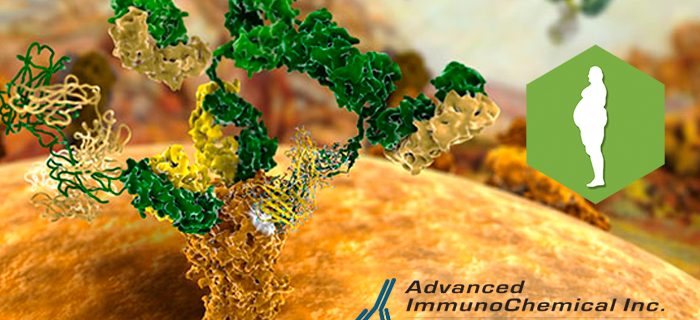New! Advanced ImmunoChemical, Inc. now offers Adiponectin antibodies with properties that detect LMW, HMW or total Adiponectin for assay development and research (1). In addition, we also provide purified native Adiponectin that can be used as a calibrator for Adiponectin immunoassays.
As obesity and metabolic syndrome have become global health burdens, there is an increasing need to find biological markers that can help in the management of metabolic syndrome, pre-diabetes and diabetes. Interest in adiponectin (Adn) increased in mid-2000s as a growing number of studies suggested that it could serve as an effective marker that is predictive of glycemic efficacy. Since then, interest in adiponectin has remained high and it appears that adiponectin will slowly find its way into routine laboratory diagnostics.
For further characterization and pair recommendations, please review our Adiponectin AssayNotes.
Schematic Representation of Adiponectin Oligomeric Forms
Ordering information:
Cat. #1-ADP Monoclonal Mouse Anti-human Adiponectin
Cat/ #8-ADP Native human Adiponectin
Additional markers for studying diabetes and obesity
HbA1c. A number of studies have shown that glycated hemoglobin (HbA1c) concentration provides a better estimate of average hyperglycemia than routine determinations of blood glucose concentration. HbA1c measurement in diagnosis of type 2 diabetes has been recommended by American Diabetes Association, World Health Organization and International Diabetes Federation.
Proinsulin, insulin and C-peptide. Assays for proinsulin, insulin and C-peptide are widely used in the monitoring of hypoglycemia, pathogenesis and treatment of diabetes mellitus. Insulin is synthesized in the pancreas from its precursor proinsulin. During this process, proinsulin is proteolytically cleaved into three peptides: A- and B-chain and C-peptide. A- and B-chains are covalently linked by disulfide bonds to form mature insulin.
Analysis of proinsulin synthesis and processing, as well as insulin and C-peptide clearance, are very important for the improved understanding of carbohydrate metabolism abnormalities. Assays for insulin, proinsulin and C-peptide are widely used in the monitoring of hypoglycemia, pathogenesis and treatment of diabetes mellitus.
Leptin and ghrelin. Leptin and ghrelin regulate food intake and their functions in obese people have been intensively studied. We offer monoclonal antibodies against leptin and ghrelin for research purposes.
Reference:
Journal of Immunoassay and Immunochemistry 34:2 (2013).
- Kindly see our other Metabolic Syndrome products at www.AdvImmuno.com


